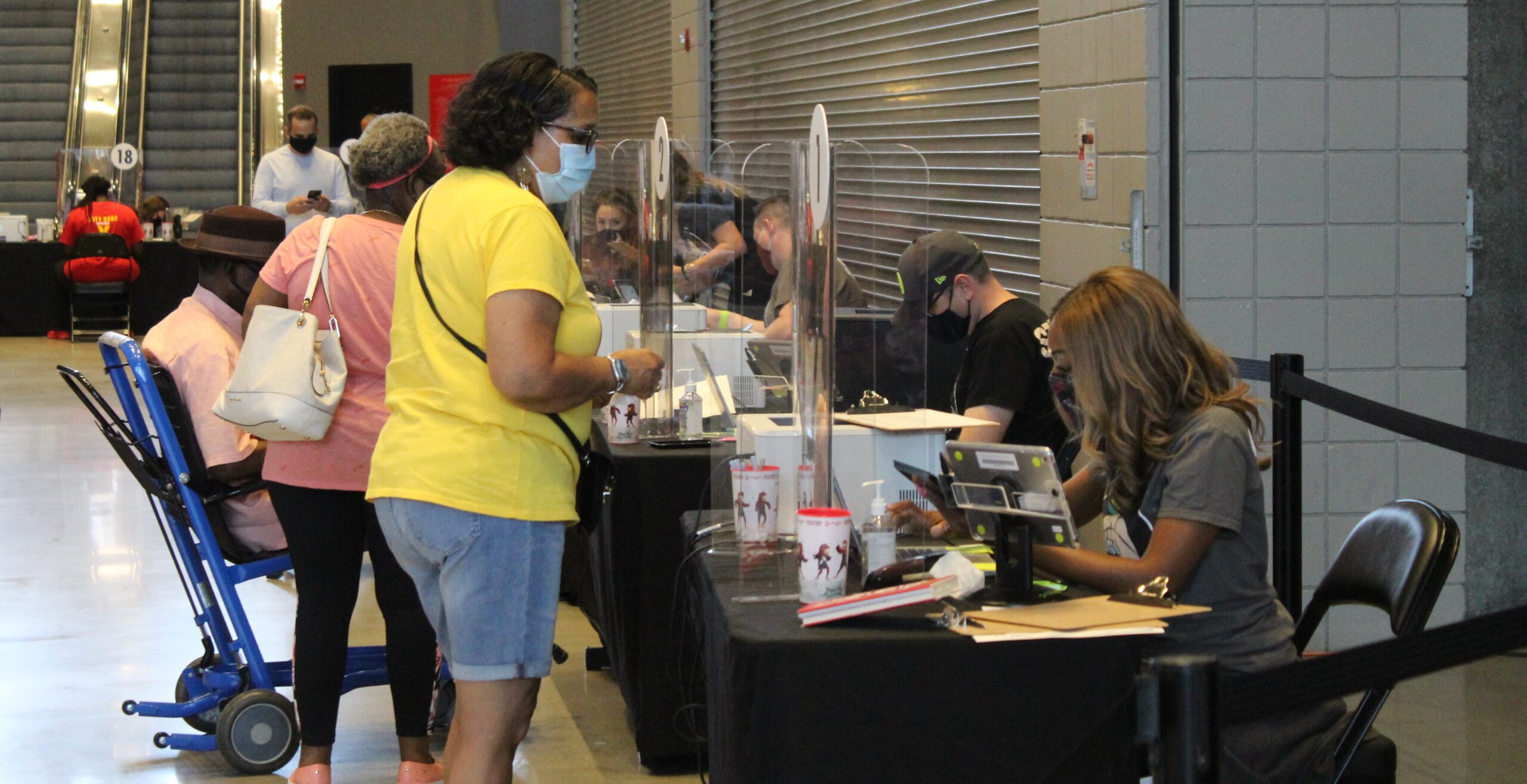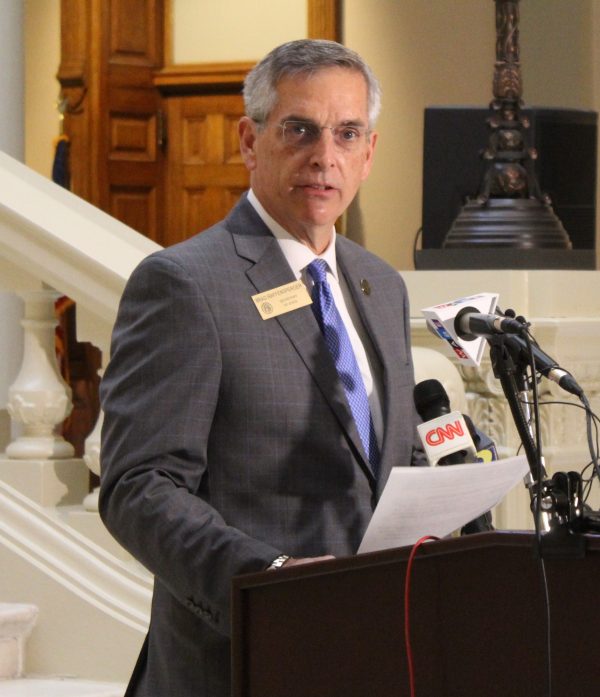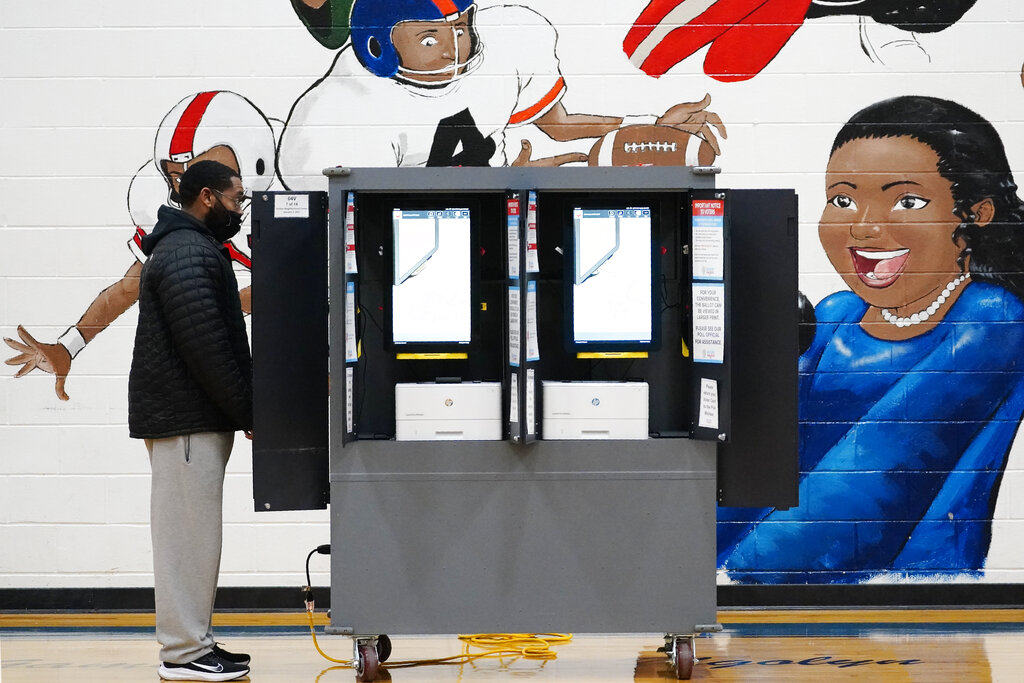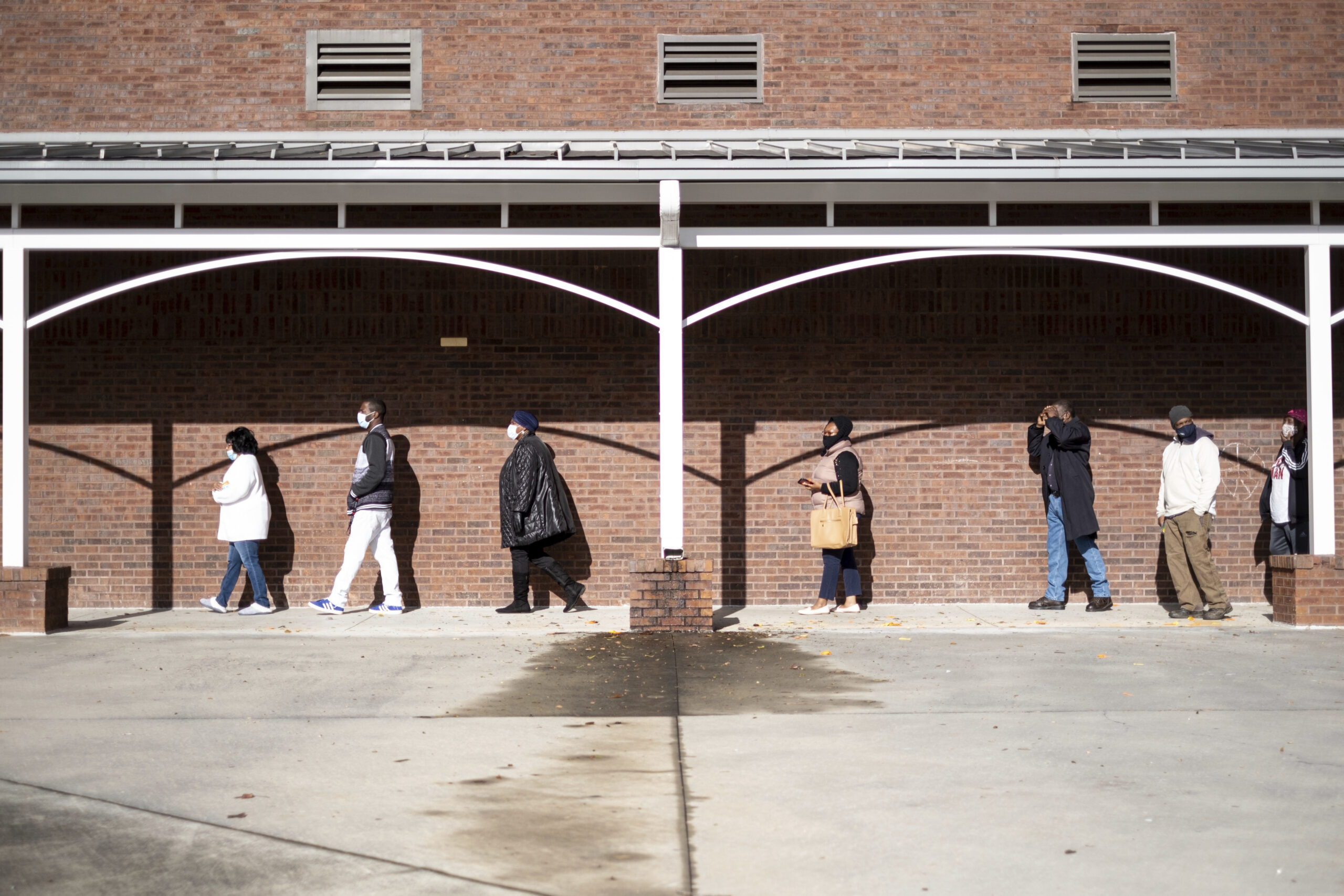Record Early Turnout Puts Georgia’s New Election System To The Test

A poll worker at State Farm Arena checks in a voter Monday, the first day of early voting in Georgia.
Emil Moffatt / WABE
The record number of early voters this week in Georgia reflects a great degree of interest in the November election.
But at times, it’s also overwhelming the computer system that poll workers use to check in voters.
Georgia Secretary of State Brad Raffensperger compared it to too many cars getting onto I-285 at rush hour.
He says a surge of voters when polls open in the morning can slow down the brand new system, leading to longer lines. Raffensperger says the state is working with the vendor on a fix that would bolster the system.
“It’s not just for what we have now, but also to be prepared. We expect really week 2, week 3 the numbers to increase, so we want to make sure that we add additional capacity to handle what we’re projecting and also being ready for Tuesday, Nov. 3,” said Raffensperger.
Nearly 130,00 people voted in Georgia on Monday; 111,000 Tuesday. The largest early voting day is expected to be the final day, Friday, Oct. 30.
In light of problems with the electronic poll books in past elections using the new equipment and software, a federal judge this month ordered counties to have backup paper poll books at each polling site on Election Day, Nov. 3.
The state wanted a stay of that injunction, but it was denied Wednesday as U.S. District Judge Amy Totenberg wrote that the state had “failed to establish the heavy burden necessary to warrant a stay.”
A ‘Resource-Intensive System’
Fulton County Elections Director Richard Barron, speaking on WABE’s “Closer Look” on Tuesday, said elections staff and poll workers are gradually becoming more accustomed to the new voting technology.
“It is doing its job. The machines are performing well, and I think everyone is comfortable with them,” said Barron. “It is a labor-intensive, resource-intensive system. We have to throw a lot of resources at it to make it work.”

Raffensperger was asked whether he felt all 159 counties could devote these resources to keeping the machines running at an optimal level.
“We’ve had a real strong push to make sure we have enough tech workers in place,” said Raffensperger. “Some people, I read in the newspaper, they called it ‘clunky,’ but at the end of the day, what voters wanted was a verifiable paper ballot trail.”
Raffensperger says the extra equipment and extra steps were needed to help provide that paper trail, while upgrading the state’s touchscreen voting experience, which had been in place since 2002.
Long Lines
Some of the longest lines in the state during the first two days have been in Cobb and Gwinnett counties where fewer than a dozen early voting sites are open, as compared to more than 30 in Fulton County.
Raffensperger was asked whether the number of early voting sites were sufficient for counties of those sizes.
“Those are all county decisions,” said Raffensperger. “We are under emergency rules, and they can add additional polling locations if they feel that they need that. And we would encourage everyone to do that.”
Democratic state Rep. Sam Park, who represents Gwinnett County, says besides more voting sites, another factor that could have helped reduce lines in that county would have been to send out absentee ballot applications to all active voters in the county.
The county’s board of commissioners, which has a Republican majority, rejected that idea, even though the board of elections had recommended it.
“People should not have to wait six hours, nine hours, 12 hours in line to vote,” said Park. “This is unacceptable in our democratic republic, especially when these long lines could have been avoided altogether.”
The secretary of state’s office took the unprecedented step before the June primary of sending an absentee ballot application to all active voters in the state but declined to do so for the November general election.
Even without the state or county sending out vote-by-mail applications in Gwinnett, nearly 154,000 voters have requested an absentee ballot. Some 20,000 have been completed and returned to the county elections office.







